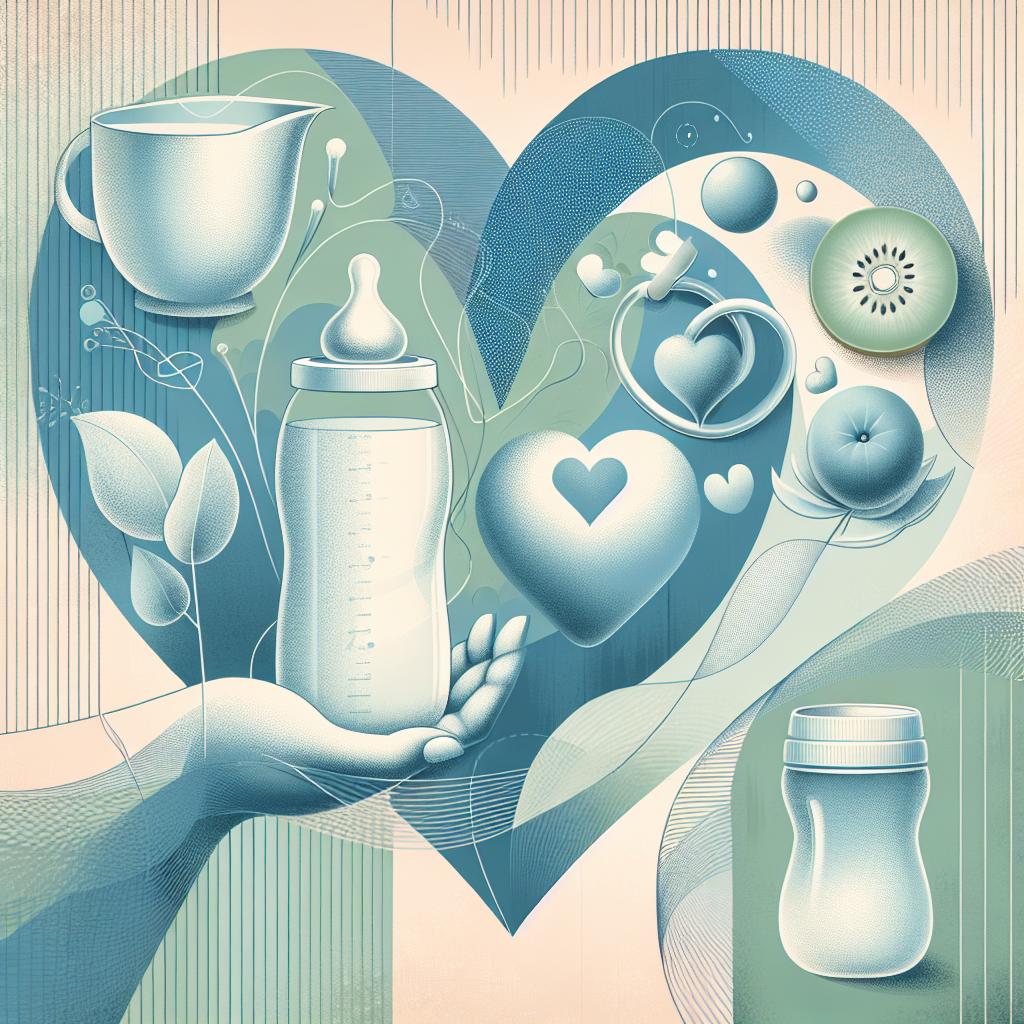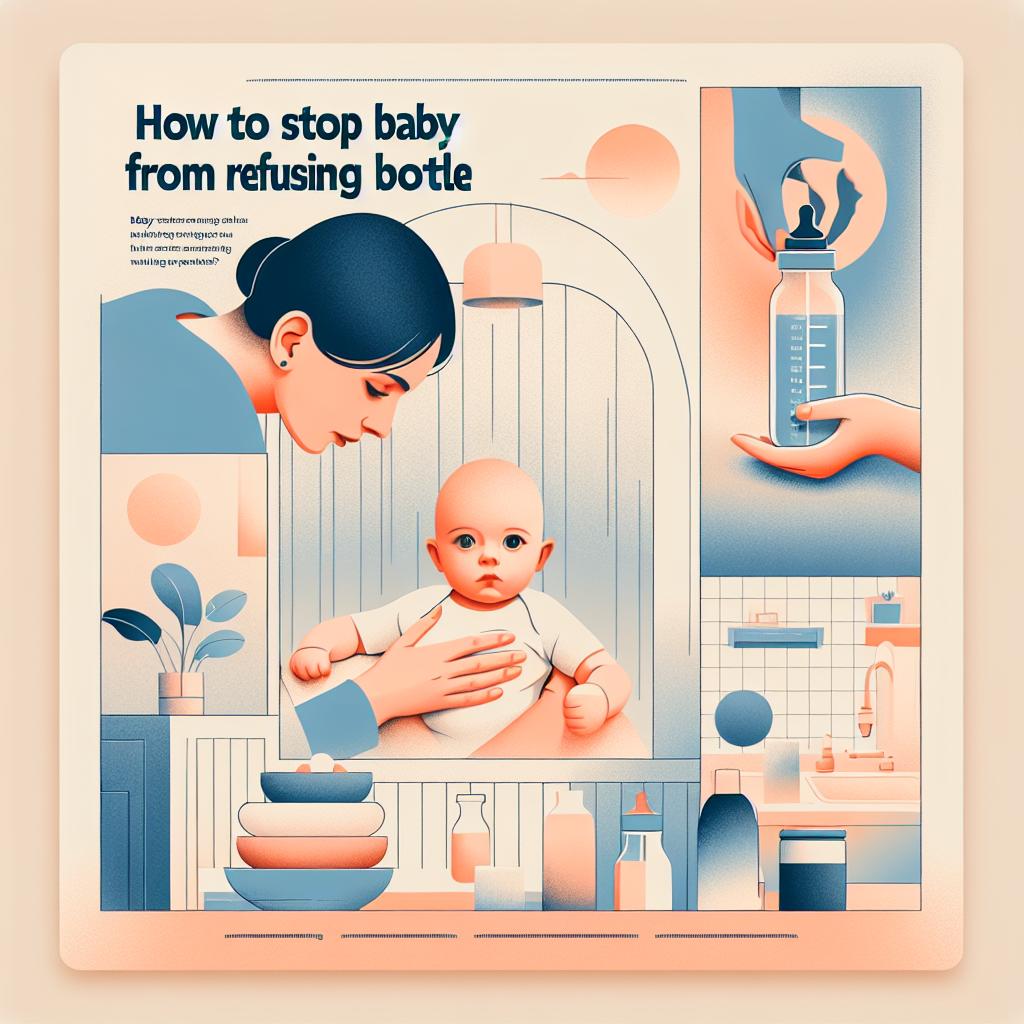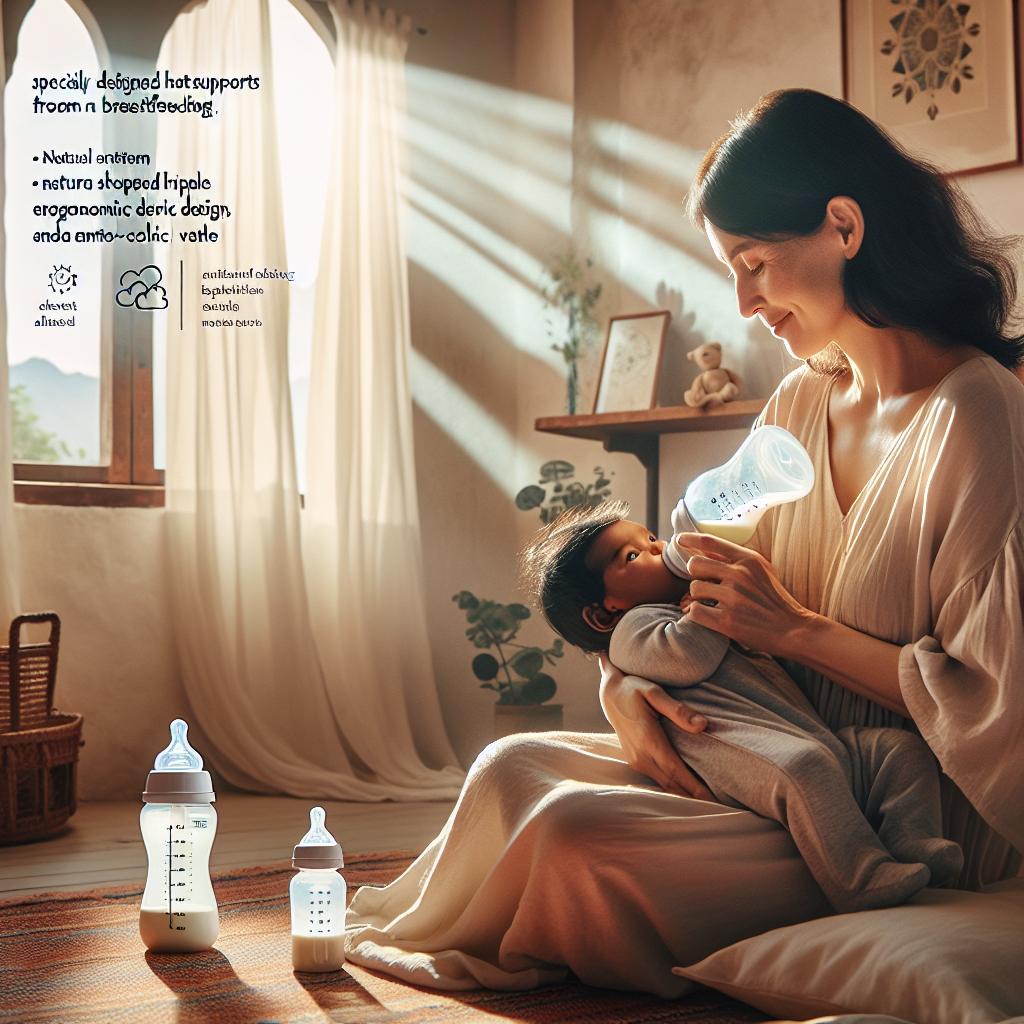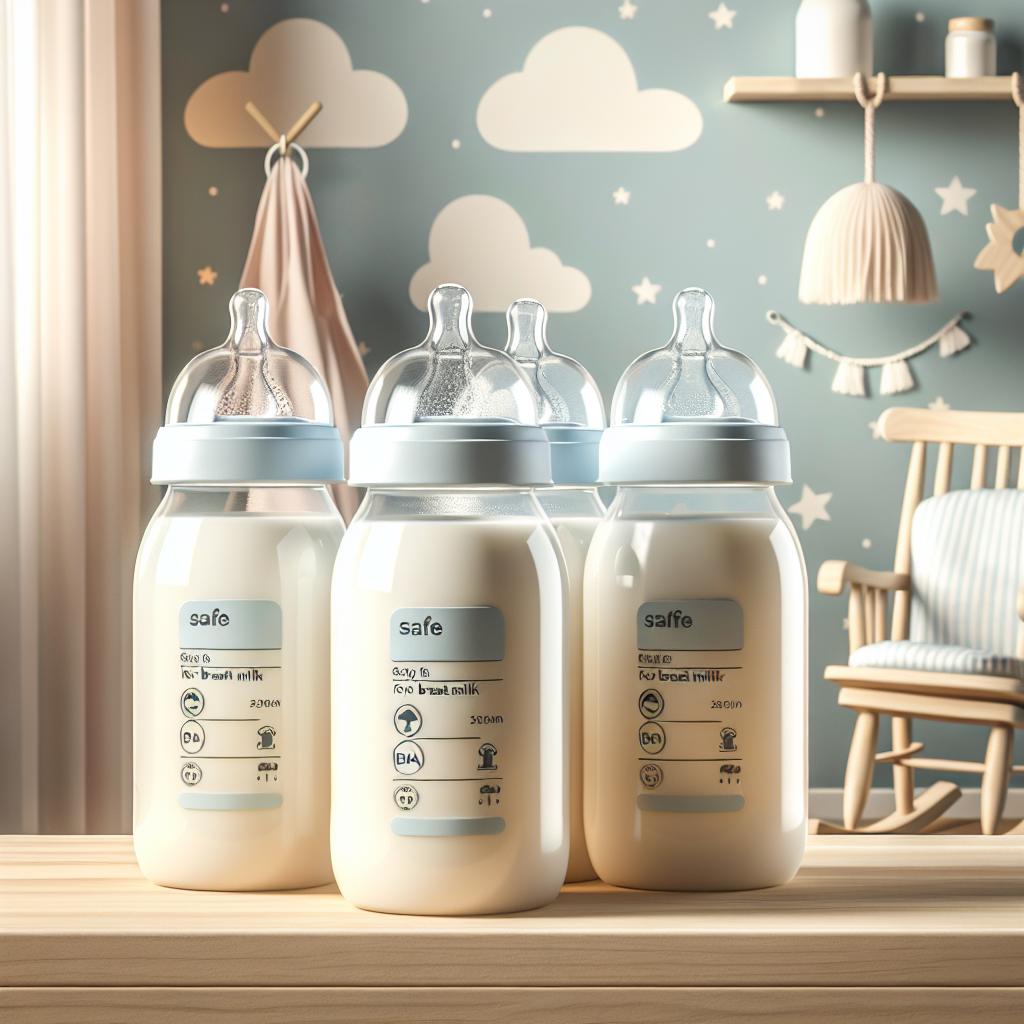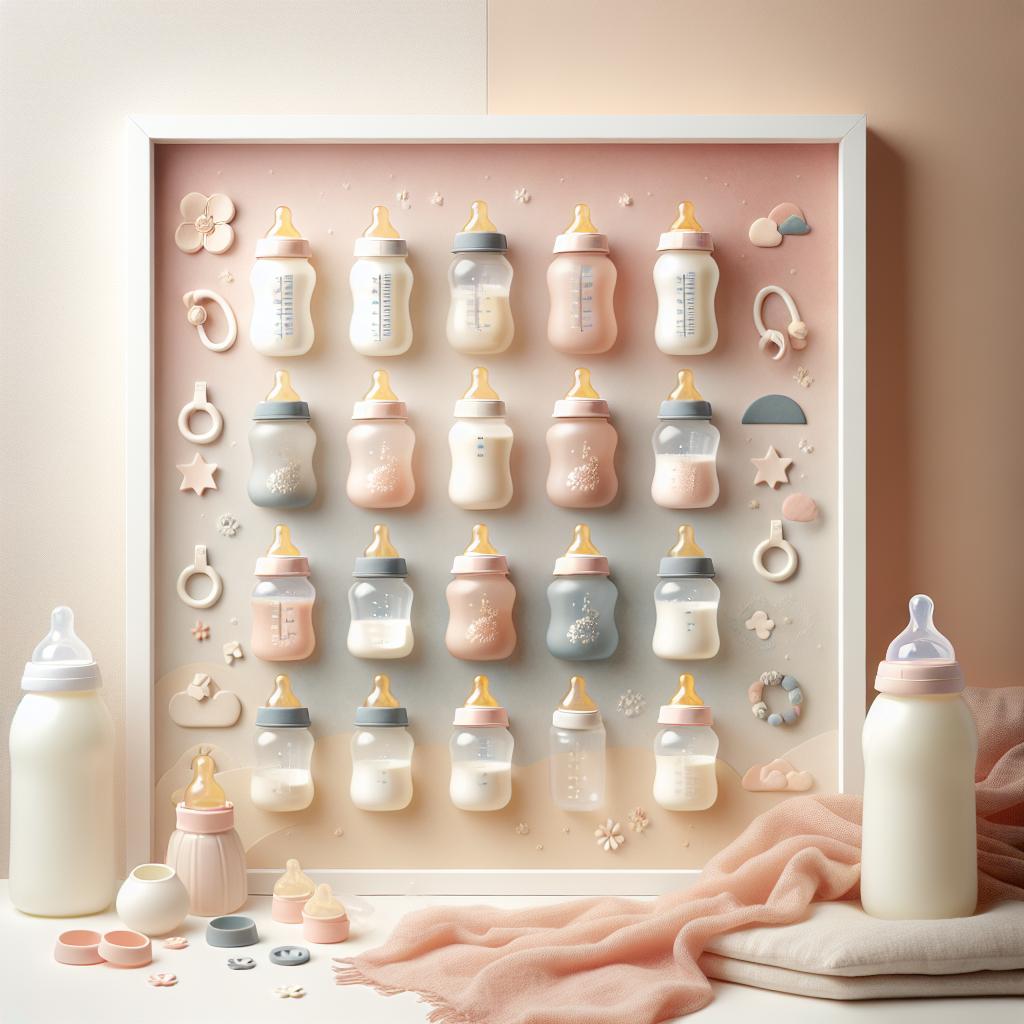Baby Hydration Tips: Essential Insights for Feeding Success
Understanding the Importance of Hydration for Babies
Ensuring your baby remains sufficiently hydrated plays a crucial role in their overall health and wellbeing. Nonetheless, many new parents struggle with distinguishing how much water their baby should ingest daily. As infants primarily obtain their water and essential nutrients from breastmilk or formula, it’s important to understand the adequate consumption for their age and weight.
Typically, babies under six months do not require additional water, as their hydration needs are met through breastmilk or formula. However, as the baby grows and begins consuming solids, they should be introduced to water in gradual increments. Additionally, hydration becomes exceptionally important as babies become more active, as they may lose water through sweat.
Ensuring Your Baby’s Hydration: Practical Tips
Now that we’ve established the importance of baby hydration, let’s discuss some practical baby hydration tips to ensure your little one remains well-hydrated.
- Use Suitable Feeding Bottles: Always opt for bottles that are BPA-free, designed to mimic natural feeding. The secure feeding choice bottles come highly recommended for safe and efficient hydration.
- Maintain Nutrition Balance: Whether you’re breastfeeding or using formula, ensure your baby gets the right mix of water, nutrients, and electrolytes.
- Observe your Baby’s Behavior: Signs of optimal hydration in babies include regular urine output, moist lips, and a contented demeanor post-feed.
- Consult a Pediatrician: Always consult a pediatrician for age-specific hydration advice. They can provide professional guidance based on your baby’s individual needs.
Striving for Feeding Success: Vital Parenting Insights
Achieving feeding success is a crucial milestone in your parenting journey, and proper hydration is a key component. It’s important to understand that your baby’s hydration needs will evolve as they grow, and adjusting to these changes is essential for their overall health.
As you navigate feeding experiences with your baby, always prioritize safety and comfort. The perfect feeding experience bottles are designed to eliminate the common feeding difficulties, offering a smooth and stress-free feeding experience for both babies and parents.
Ultimately, successful feeding is less about perfection and more about understanding your baby’s unique needs. This study outlines that successful feeding practices are linked to understanding baby’s signals and responding to them thoughtfully.
The Role of Parents in Baby’s Hydration
As parents, we play an instrumental role in our baby’s hydration journey. By understanding the essentials of baby hydration and incorporating these tips, parents can respond proactively to their baby’s needs. It’s also important to remember that hydration practices are just one facet of your baby’s feeding journey.
The safety-conscious bottles are specifically designed to minimize the risk of colic and gas in babies, making them a preferred choice for many parents.
After all, every small step towards understanding your baby’s needs is a giant leap towards creating a nurturing, loving, and nourishing environment for your little one. So, imbibe these baby hydration tips, and here’s to many feeding successes ahead!
Hydration Needs of Babies at Different Ages
As your baby grows, their hydration needs will change. Understanding and adjusting to these changes forms a crucial aspect of your baby’s health and wellbeing. According to World Health Organization, during the initial six months, infants should be exclusively breastfed, which provides all necessary hydration and nutrients. From 6 months of age, babies should begin to consume complementary foods in addition to breast milk or formula, introducing limited amounts of water.
As your baby introduces solids into their diet, they will require additional water to help with digestion and nutrient absorption. Transition into this phase should be gradual and monitored.
Hydration-Related Challenges: Dehydration and Overhydration
Parents need to be aware of both dehydration and overhydration in babies. While rare, these conditions can pose serious health issues. Dehydration occurs when a baby doesn’t receive or retain sufficient fluids, while overhydration happens when they consume too much water, diluting essential electrolytes in their bodies.
Identifying Dehydration in Babies
While the most obvious sign of dehydration in babies is infrequent urination, additional signs may include dry lips and mouth, sunken eyes or fontanel (the soft spot on the top of a baby’s head), lethargy, and irritability. If you notice any of these symptoms, it’s important to consult a pediatrician immediately.
Identifying Overhydration in Babies
Symptoms of overhydration in infants may not be as conspicuous. However, signs like swelling or puffiness, irritability, changes in eating pattern or sudden weight gain might indicate overhydration. Again, any observed anomalies in your baby’s behavior warrant immediate medical attention.
Breastfeeding Hydration Tips
If you’re breastfeeding, hydration isn’t only key for your baby, but crucial for you too. According to Academy of Nutrition and Dietetics, staying well-hydrated can help maintain your milk supply. It’s suggested that breastfeeding women drink about 3.1 liters of fluids per day.
- Stay Hydrated: Make sure you drink sufficient fluids during the day. Try keeping a water bottle within reach, especially while nursing.
- Nutrition Balanced Diet: A well-balanced diet can also contribute to maintaining an optimal milk supply.
- Rest and Relax: Adequate rest and less stressful environment could help in successful breastfeeding.
Doing your best to provide your baby with adequate hydration can feel overwhelming, especially for first-time parents. But remember, it’s all part of the journey. Your efforts are nurturing your little one’s growth, development, and good health. As you learn to master the ins and outs of hydration, you will also begin to understand your baby’s unique needs and cues better.
The information provided here also works in tandem with eternally valuable resources about infant and young child feeding provided by the UNICEF’s Baby-friendly Hospital Initiative and references found on WebMD.
Remember that each baby is unique, as is their feeding journey. Embrace the learning curve and stay patient – after all, healthy hydration is fundamental to your baby’s growth and development.
